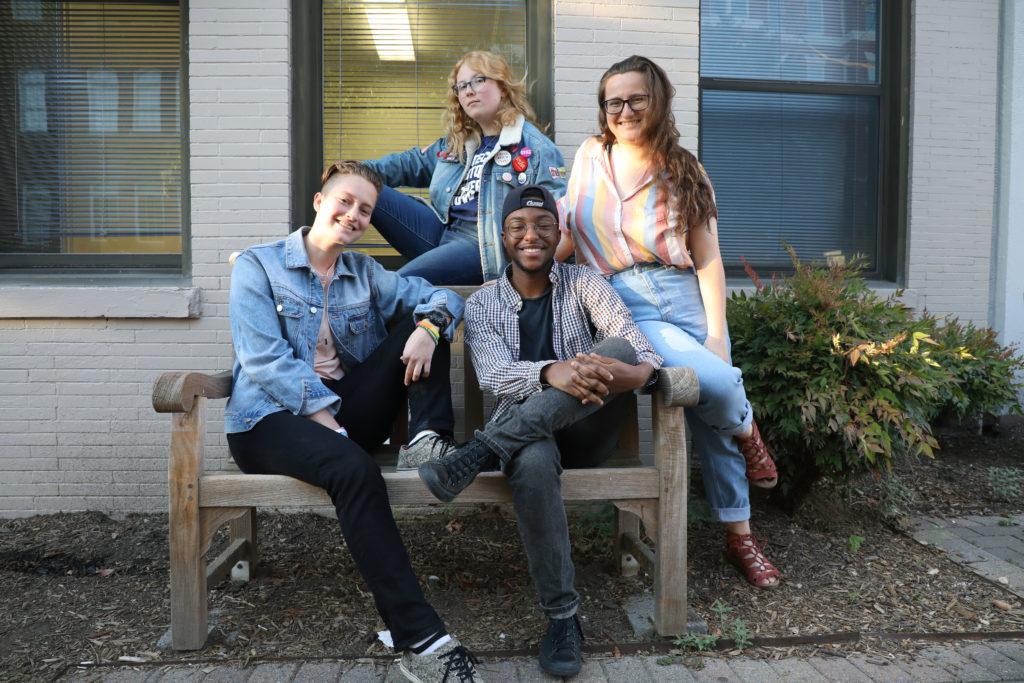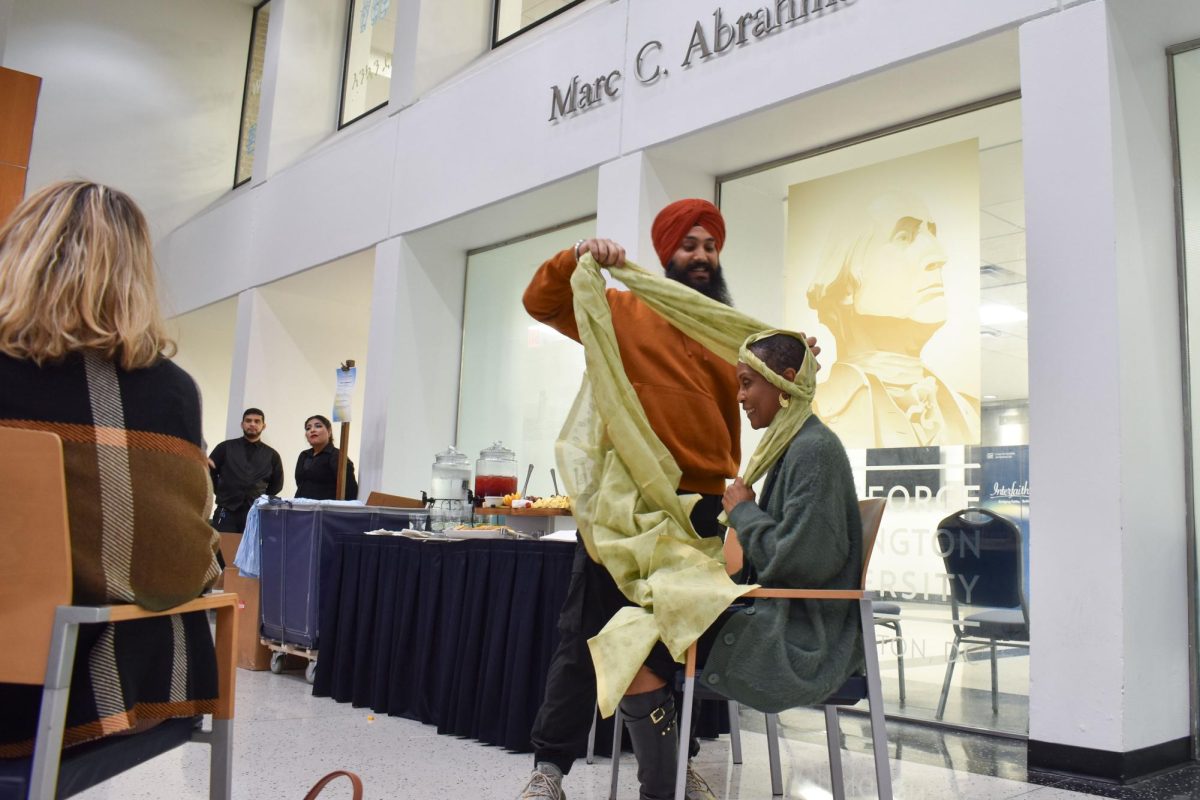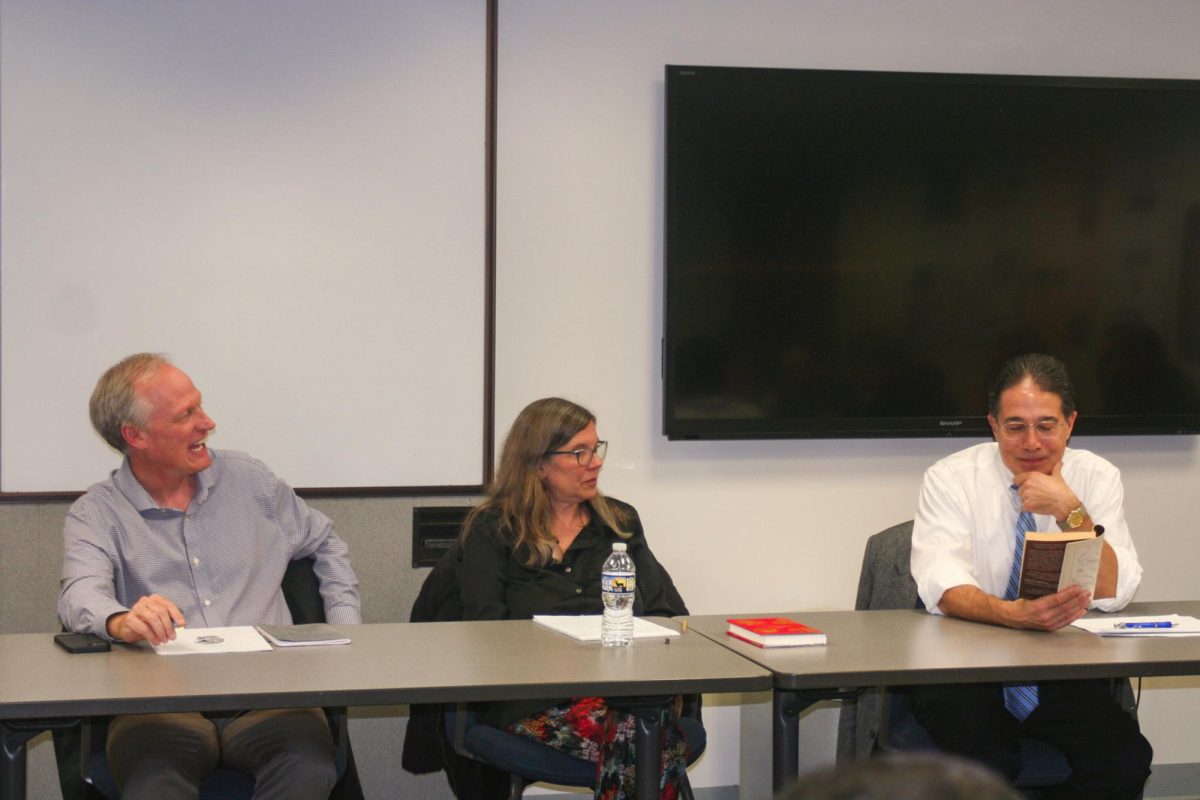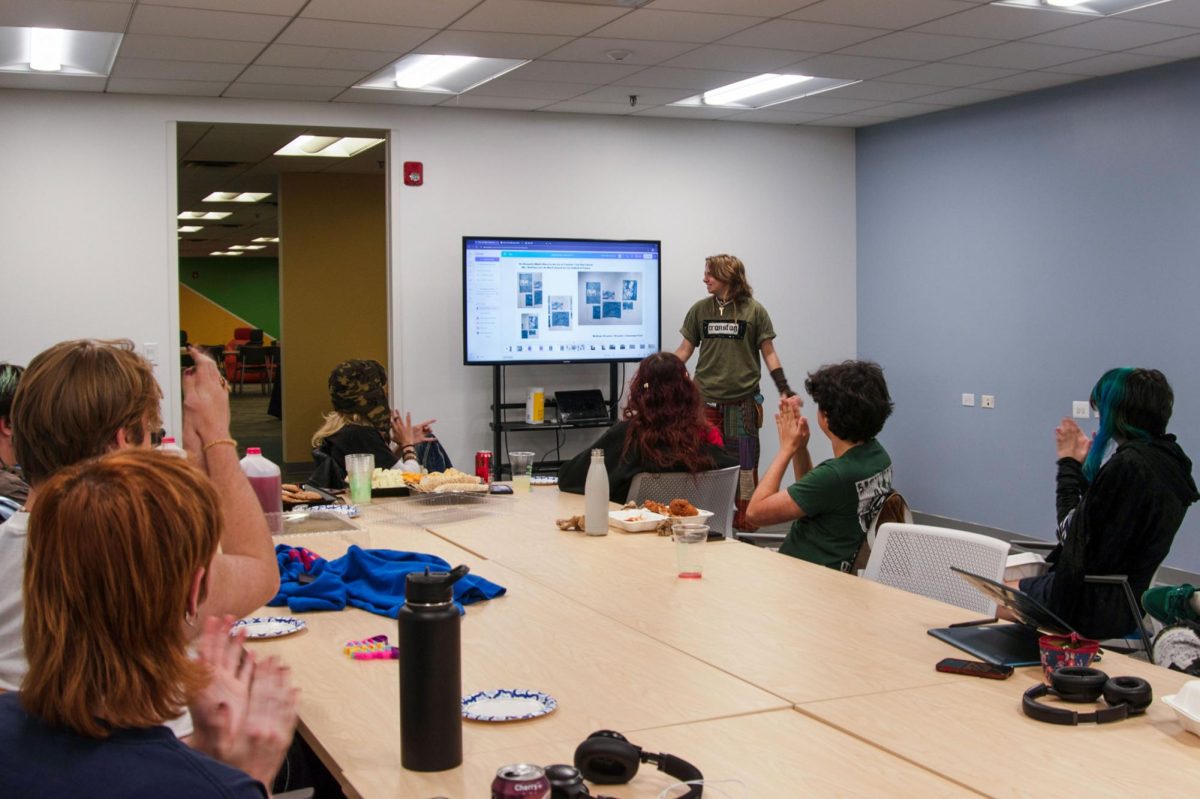A group of students is looking to establish a community for transgender and non-binary students to support each other and address issues they face on campus.
Transgender and Non-Binary Students of GW registered as a student organization in April but will host events and expand its membership starting this fall. Marley Smith, the president of the group, said transitioning or being transgender can be “very lonely,” and he wanted to create a space on campus to help transgender and non-binary students with similar experiences build community.
“It would be very impactful that we have a voice on campus because there are people who aren’t out yet,” he said. “We’re hoping that even if they don’t come out during college, that we’ll be able to help some student find their gender identity or find whatever they’re looking for and get inspiration from us and what we’re doing on campus.”
Smith, a junior, said he formed the group after he began transitioning in February and could not find an organization that built a network for transgender students.
“I was talking to my therapist, and he was telling me, ‘Oh, do you know any fellow trans students at GW?’” he said. “I was just kind of shocked at myself because it was like, ‘I actually only know one,’ and I thought that I should probably know more.”
He said the group’s 31 members, including six executive board positions, meets about every two weeks for about two hours to discuss their day-to-day experiences as transgender and non-binary students.
“We’re not talking about any big agendas during these hangouts,” he said. “We’re just basically enjoying each other’s company that we couldn’t get otherwise.”
Senior Becca Blacker, the vice president of the group, said Smith mentioned to her that GW lacked community and organizations for gender non-conforming students when Smith was transitioning last year.
“Something that I have continued to hear is how empowering it is to be surrounded by people who have similar experiences, who you don’t have to explain anything to,” she said in an email. “I was really moved by my friend’s experience and have been supporting him throughout for the development of that space.”
Blacker said the organization hopes to connect with other D.C. schools to discuss issues that may affect transgender and non-binary students and expand the group’s impact.
“By creating this community, we are hoping to share this message and create a space that is safe and comfortable for people to be themselves and see the impact they can have by being proud in their identity,” she said.
Junior Aedy Miller, the organization’s director of marketing and public relations, said they run the group’s Instagram account and write the organization’s newsletter, which provides updates about the group’s events and advocacy work. They said the group is collaborating with other LGBTQ student organizations like Queer Radicals and co-sponsor events during GW’s Transgender Awareness Week next month to reach more students.
“We want to make sure that all the communities of which trans people are a part – which is every community – feel represented and included and all the folks who helped us create this whole week of programming, that they feel included as well,” Miller said.
They said the group will help plan programming like events for Transgender Day of Remembrance on Nov. 20, during which the group will hold a vigil in Kogan Plaza to read the names of people subjected to transphobia in the last 20 years.
Miller said the group also hopes to work with officials and Student Association members to address issues that transgender and non-binary students experience. Miller was selected to serve on the SA’s diversity and inclusion assembly earlier this month.
They said the group has begun talks with housing officials and SA members about topics like difficulties finding appropriate housing or situations in which professors misgender students or say that transgender people do not exist.
“These are things that people within our community have echoed on campus,” they said.
Sophomore Charlie Knopf, the group’s events and assistant public relations chair, said they help plan social events for the group and organize off-campus transgender advocacy events, like the National Trans Visability March on D.C. in September.
Knopf said the group will host mostly social gatherings this semester like “Transgiving,” an event for transgender students to share a meal and talk together.
The group will host informational sessions on the Foggy Bottom and Mount Vernon campuses during Transgender Awareness Week next month and host more events in the spring that focus on issues transgender and non-binary students face, they said.
“It’s definitely a balance between fun and advocacy,” Knopf said.
Shannon Mallard contributed reporting.








